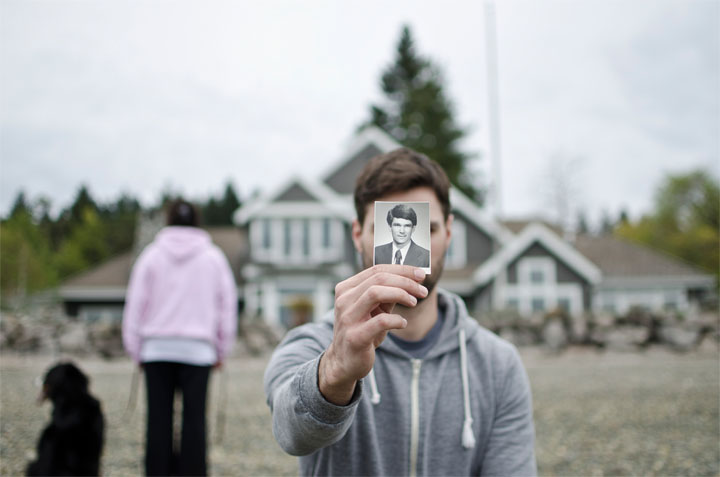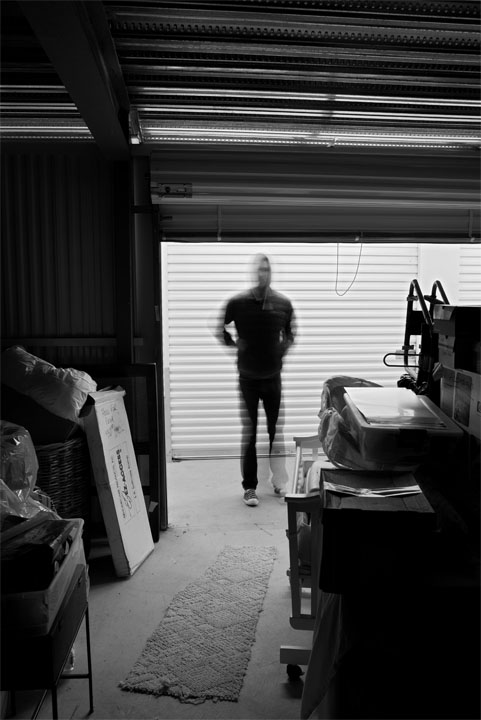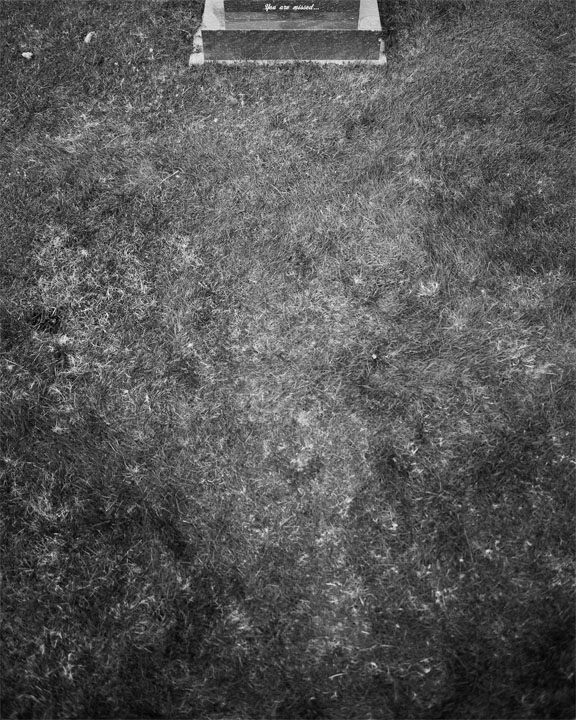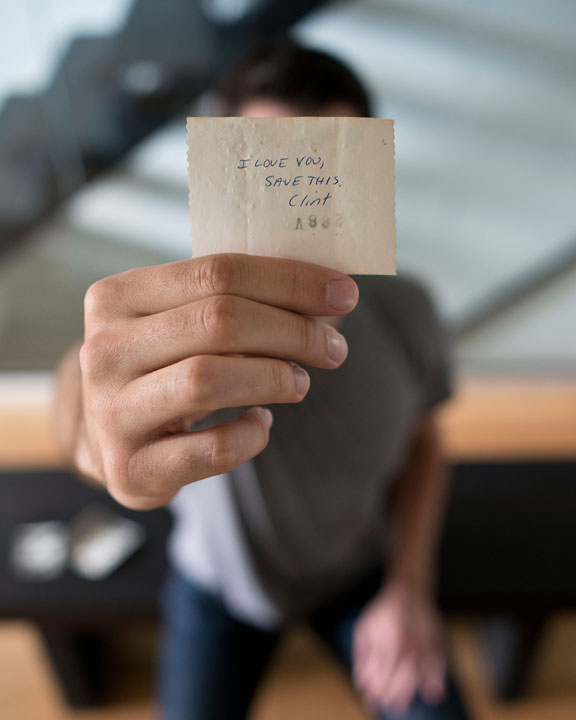Visual Arts — June 19, 2013 18:00 — 0 Comments
Patrick Names
A shadowy figure hovers and moves through a space piled high with boxes, perhaps lingering between the reality of loss and the recovery of a world that exists in unearthed memories, encountering treasures and stories of a time before illness had temporarily blurred the triumphs of his Father’s youth. We feel both the solitude and necessity of his search. In his thesis show, Keepsakes, Patrick Names allows us to witness his journey as he redefines his memories of a father lost to Parkinsons, giving us a sensitive and intimate look into the struggle of his mourning, but also telling a story greater than his own. “Through keepsakes,†Names says, “I aim to connect my personal story to the broader experience of losing a loved one, as we must all learn to navigate the intimate relationship between life, loss, and renewal.†It is this navigation and renewal we are invited to understand and take part in.
Decades-old boxes scatter the gallery floor, now vacant vaults, reliquaries of Names’s family’s history, and though empty, their poignancy is not in what they contain now, but what was uncovered within them. In one, we see an image of Names, grief-wrecked and naked, curled among the boxes now in front of us. Alongside the photographs hang framed records of his father’s athletic prowess, college basketball brochures now made precious by the contrast they create between past and present.
In You Are Missed…we know we are graveside, but the emphasis is on the grass covering the grave, and the space is as quiet and open as it is full, heavy and rich with deep emotion. Names has allowed us to see through his eyes but gives us the opportunity to experience this place with our own memories the forefront of our thoughts. In his essay Self Reliance, Emerson says “to believe what is true for you in your most private heart is true for all men- that is genius.†It is this sort of genius that Names has so adeptly displayed in involving us in his story, pulling us into a narrative made all the more relatable by his willingness to risk vulnerability. In the photographs we see places made empty by absence, and a son confronting the sharp pain of the voids left behind. It is this confrontation that allowed Names to share Keepsakes, and what encourages us to encounter the stories kept below the surfaces of our greatest losses.
-Visual Arts Contributor, Helen Stoner
Patrick’s work is currently on view in the student Thesis show at Photo Center NW until July 15th
The answer isn't poetry, but rather language
- Richard Kenney






